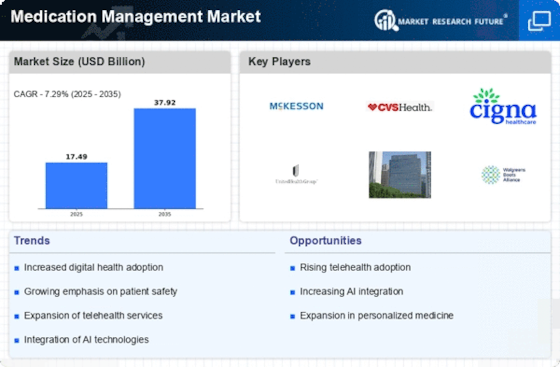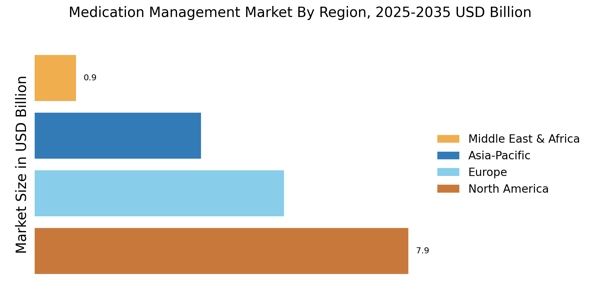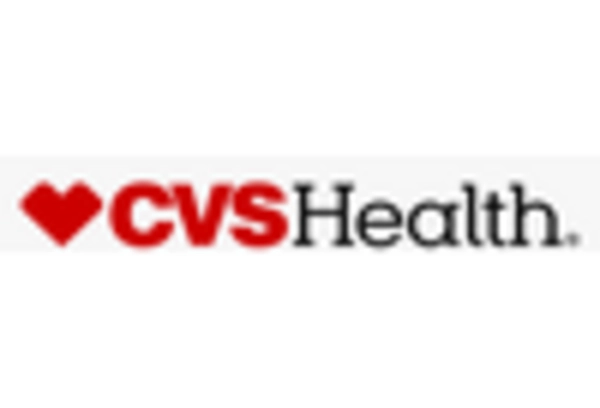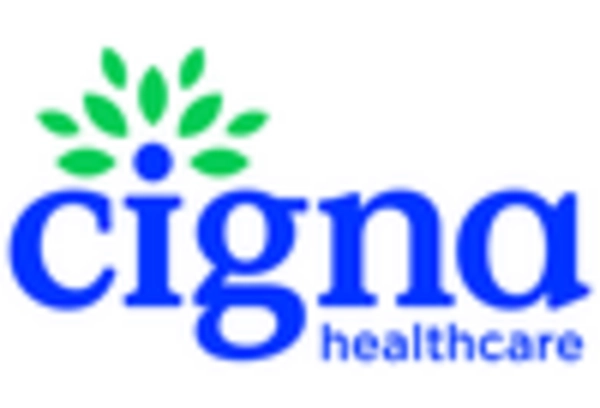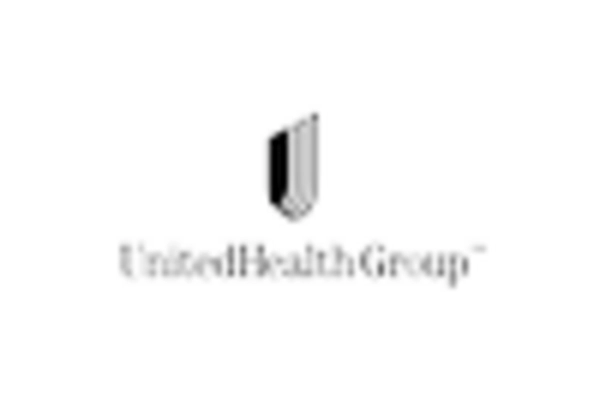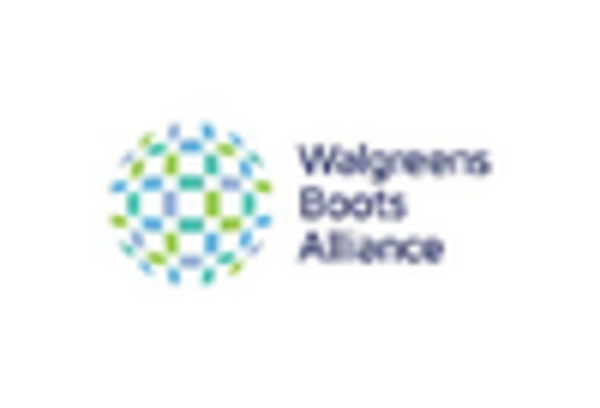Rising Prevalence of Chronic Diseases
The increasing prevalence of chronic diseases such as diabetes, hypertension, and cardiovascular disorders is a primary driver of the Medication Management Market. As these conditions require ongoing medication management, the demand for effective medication management solutions is likely to rise. According to recent data, chronic diseases account for approximately 70% of all deaths, underscoring the need for robust medication management systems. This trend suggests that healthcare providers are increasingly focusing on medication adherence and management to improve patient outcomes. Consequently, the Medication Management Market is expected to expand as healthcare systems seek to implement comprehensive solutions that address the complexities of chronic disease management.
Shift Towards Value-Based Care Models
The shift towards value-based care models is reshaping the Medication Management Market. Healthcare providers are increasingly incentivized to improve patient outcomes while controlling costs, leading to a greater focus on medication management. This transition encourages the adoption of comprehensive medication management systems that monitor patient adherence and optimize therapeutic outcomes. As value-based care becomes more prevalent, healthcare organizations are likely to invest in solutions that demonstrate measurable improvements in patient health and satisfaction. Consequently, the Medication Management Market is poised for growth as providers seek to align their practices with the principles of value-based care.
Technological Advancements in Healthcare
Technological advancements are transforming the Medication Management Market, enabling more efficient and effective medication administration. Innovations such as electronic health records, telemedicine, and mobile health applications facilitate better communication between patients and healthcare providers. These technologies enhance medication tracking and adherence, which is crucial for managing complex medication regimens. The integration of artificial intelligence and machine learning into medication management systems is also gaining traction, potentially improving patient outcomes through personalized medication plans. As these technologies continue to evolve, they are likely to drive growth in the Medication Management Market, as healthcare providers seek to leverage these tools to optimize patient care.
Emphasis on Patient Safety and Compliance
Patient safety and compliance are becoming increasingly critical in the Medication Management Market. Regulatory bodies are placing greater emphasis on medication safety, leading to the implementation of stricter guidelines and protocols. This focus on safety is driving healthcare providers to adopt advanced medication management systems that enhance compliance and reduce the risk of adverse drug events. Data indicates that medication errors affect millions of patients annually, highlighting the urgent need for effective management solutions. As healthcare organizations prioritize patient safety, the Medication Management Market is expected to grow, with an emphasis on systems that ensure adherence to best practices and regulatory standards.
Aging Population and Increased Healthcare Demand
The aging population is a significant driver of the Medication Management Market, as older adults typically require more medications to manage multiple health conditions. By 2030, it is projected that the number of individuals aged 65 and older will reach approximately 1.5 billion, leading to an increased demand for medication management solutions. This demographic shift necessitates the development of systems that can effectively manage polypharmacy and reduce the risk of medication errors. As healthcare systems adapt to this growing population, the Medication Management Market is likely to see substantial growth, driven by the need for tailored solutions that cater to the unique needs of elderly patients.


